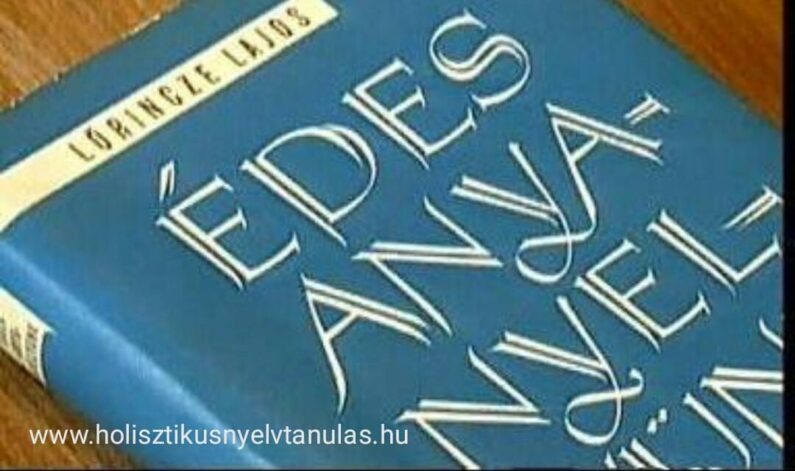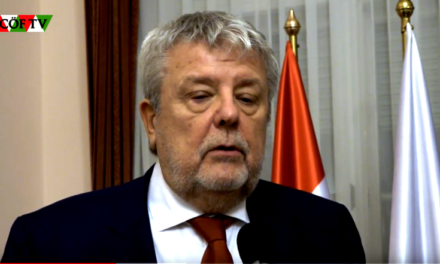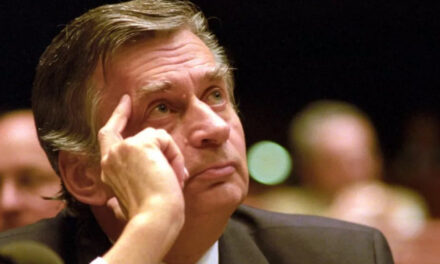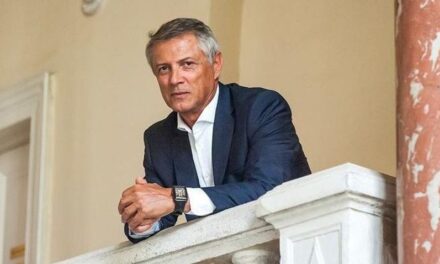The Carpathian homeland is much more than a country. A family of languages, a sweet mother tongue, a speech culture that is protected from deterioration. June 4th is still a bit away, but history is very much within us. Miklós Duray's highland thinking is also close to me, because in a country as large as the country that was torn apart by the Trianon peace decree, my southern roots were also nourished in Budapest. And my inner voice, constantly protesting against the narrow use of terms across the border or in the Carpathian basin, really sang to the sky when I first read and heard the unadulterated Duray term: CARPÁTIAN HOMELAND. That's it, yes! writes dr. Lajos Békefy on the Felvidek.ma portal.
The realization that I had been carrying for years immediately resonated with me: the homeland is always more than the country. This recognition led me to write my articles on this topic on Cluj-Napoca's agnusradio.ro. with Zoltán Latinovits in Rezső's yellow house in Pertorini in 1974
"My dear, the country can be brown, red, yellow or black, but the homeland is always red-white-green!".These words became organic in my blood. That's why it hurts immeasurably, with real post-Trianon anguish, when I experience step by step the deterioration of language, which is not only a me by Péter Eszterházy , but is everywhere.
Like tyranny before for decades. And he destroys everything he can. Human relationships, thinking level.
I used to go abroad for two reasons: because the person coming west of Lajta does not take it as an insult, if I say hello, they even smile in response. I also go to people who speak other languages so that I don't have to hear the barrage of swearing for at least a few days, a week or two, 24 hours a day on the bus and in the store, and in almost every area of our existence. Perhaps churches are still islands of green language, and doctors' waiting rooms, intensive care units, and interrogation rooms...
All-Hungarian unity against language decline. We have become a swearing people. Obviously not everyone, since there is no doubt that the inner need, the quality of the emotions of the heart and soul produce the power of the scrapping curses of the words or the cultured creativity.
Where is teacher Lajos Lőrincze and his students' language-protecting, language-cultivating, therefore homeland-protecting and culture-protecting program from the radio?
Instead
we got Internet jargon and a flood of filth on Facebook and other platforms that we didn't even dare to think about before. An unscrupulous army of clueless intellectuals is spitting in the comments. The net is spinning.However, if such public and private language destruction takes place, it will end up as a public drama of everyone's enemy, wolf, viper, hyena. And school murders, fragments of human relationships blackmailed with intimidation and revenge, fragments of associations will collapse on us, on our future, like walls and buildings collapsing in an earthquake and war. What should be done? Together in the media, at school? I am not writing advice, but an article, but allow me this much: with explicit language protection classes, programs, communication exercises, education encouraging a positive, multifaceted experience culture, competitions, recitation and singing, church and media programs... Doing good even better. In other words, there should be a complex and comprehensive national language protection and homeland protection strategy. If we are not too late...
And here I turn to Duray's , Széchenyi's approach to life as a language preserver, Kölcsey Parainesis, József Kármán 's The beauty of the nation, and the pamphlet A Protected Hungarian Language published in Vienna in 1790 by master Sándor Báróczi
These appeared as surprisingly conscious tools of linguistic national defense at the dawn and heyday of the Reformation, from 1790. Home and language became a link, their common content. We turn the pages of the brochure for self-awareness minutes.
Báróczi searched for and found the bridge. It starts from this: "Believe me, my friend, that clothes, homeland, language, religion and sentiment (emotion) are the chains that bind us together". He intended his pamphlet to be a letter weapon, and indeed it became one. He wanted to free the protected Hungarian language from the stranglehold of Latin, the Deak language and German. His language program also inevitably became a political program. They couldn't publish it, except once, because the Viennese censorship and secret police worked well. However, his wording was a ticking time bomb for Vienna: Without us, they will kill us. Which is then rephrased as follows in Széchenyi's work Hunnia:
"Nothing about us without us".It is interesting that in Báróczi's pamphlet he attributed an important role to Calvinism in the fight for the freedom of the Hungarian language. Let us quote a few of his sentences in the context of the Bible and science, as well as language and national self-esteem: "Now ask the Calvinist child who learned his lesson in Hungarian: how are you, my son, the second commandment? Tell me. I am betting that he will say: Do not make for yourself a graven image or any likeness... The Calvinists all learn Christian lessons in Hungarian, so that throughout Hungary, every religious village calls the Calvinists the Hungarian religion. And if even the Calvinist religion can be both learned and defended in Hungarian in such a way that even the most orthodox papist cannot push it out of its corner, all the more there is no need to fear that the faith, for which the truth also takes up arms, will ever weaken because of the language. suffer?”
Faith, religious truth in Hungarian. The noble Hungarian bodyguard encouraged himself and his contemporaries not only to defend themselves, but also to defend the Hungarian language.
What language awareness! What pretentiousness in a bodyguard! The apostle James rightly compares the human language, the bearer of the mother tongue, even as a small member, to the cause of a great fire (James 3:5-6). It can only be tamed by the power of God. If this is how I look at the descent of the current public discourse, then
Is today's language deterioration, the infection that threatens our country almost with swearing, not the consequence of hidden unbelief and impiety? Or is it not the public exposure of postmodern pleasure-consumer atheism?It's worth thinking about! Because in this connection it is also true that the mouth speaks out of the fullness of the heart (Luke 6:46).
Digital age language renewal, language reform, and internal reform are needed. Who is the one who tries to please a loved one, be it his partner, child, or God, with dirty, obscene words? Or who hasn't felt how absurd it is: the sewage of blasphemy immediately pours out of the mouth with which we praise God? The culture of a purified heart is the source of a purified language and public speech. And logically, necessarily: it is also the source of a clean homeland and nation.
There is no doubt that a major language reform and language renewal is needed throughout the Carpathian homeland. Homeland in all its regions and corners, high and low. And this can only begin with the purification of the heart, soul, and thinking, let's not be afraid to say it: sanctification. Sándor Báróczi took up the pen for the protected Hungarian language. It would be time to take him and ourselves a little more seriously after 200 years. At Pentecost, we can also ask for this: Give us a pure heart and Holy Spirit, Hear me in the name of your Son, if we ask. So that there is not enough time for purification and renewal. For the happy experience of the thousand-year-old culture of the Hungarian linguistic homeliness...
Source: Felvidék.ma
Author: Dr. Lajos Békefy
(Cover image: holisticnyelvtanulas.hu )












